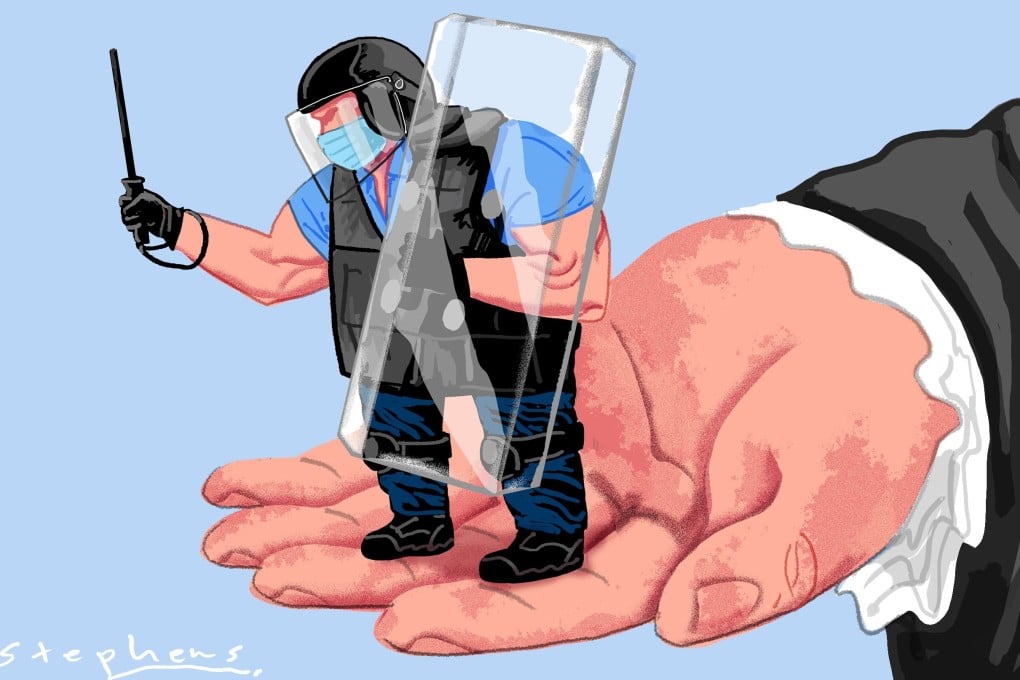Advertisement
Opinion | What lessons can be learned from the Hong Kong police’s handling of the 2019 protests?
- Hong Kong can be a case study for other societies of what can happen when police hold excessive powers and there is insufficient oversight
- Has the force paid a high price in terms of public trust and accountability?
Reading Time:4 minutes
Why you can trust SCMP
35

The discovery of a senior assistant commissioner of police inside a suspected vice establishment in Wan Chai has raised concerns regarding both the integrity of such a senior officer and the processes that the Hong Kong Police Force use to impartially investigate such incidents.
The public reaction has highlighted how the traditional trust-based model of policing in Hong Kong has broken down after the expansion of police powers since the 2019 protests. This breakdown of trust is not unique to Hong Kong, and trust in the police has declined in liberal democracies as they are unable to adapt to rapid changes in society.
In the United States, there is a renewed focus on policing, resulting from racism and the widely publicised killings of black people, notably George Floyd, by white police officers. This has led to the rise of the Black Lives Matter movement and calls to “defund the police” as a means of achieving radical change that would not come from minor reforms.
In Britain, there is concern that police powers granted to enforce pandemic lockdowns have disproportionately harmed communities of colour and eroded civil liberties. This is illustrated by data showing that the Metropolitan Police increased the use of their powers to stop and search people with no grounds for suspicion.
Advertisement
Hong Kong has seen an expansion of police powers to enforce Covid-19 pandemic restrictions, which have also been used to prevent political protests.
The Hong Kong example of expanded police powers is a lesson to other societies of how trust-based policing can lead to more authoritarian government, excused by the purported necessity to combat existential threats. In Hong Kong, the government and the police portrayed those existential threats as violent protests and then a deadly pandemic.
Advertisement
The decline of public trust in the Hong Kong police has been dramatic. In 2012, the Public Opinion Research Institute reported that the support rating for the police was 67, with 100 meaning very satisfied and 0 very dissatisfied. That rating dropped to 35.3 in November 2019 and was only 40.3 last November.

06:13
Thousands of Hongkongers defy ban and gather to mark Tiananmen anniversary
Thousands of Hongkongers defy ban and gather to mark Tiananmen anniversary
Advertisement
Select Voice
Select Speed
1.00x
